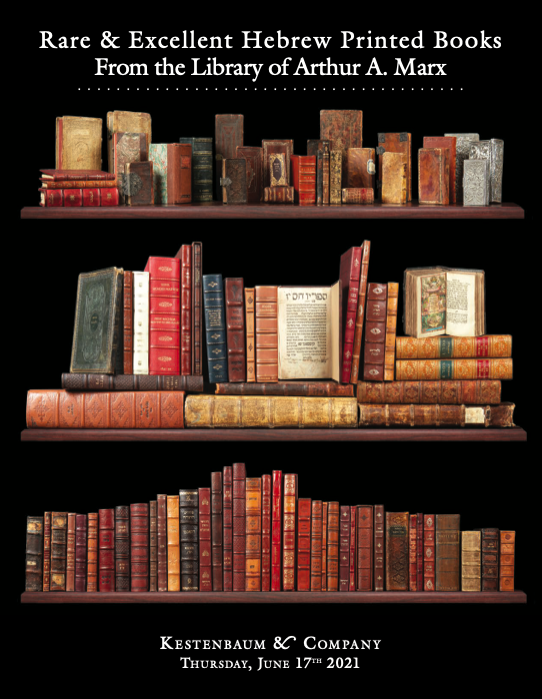Chovoth HaLevavoth [pietism]. Translated into Hebrew by Judah ibn Tibbon. <<With supplement:>> Sepher Tikun HaNephesh by Solomon ibn Gabirol.

Auction 94 |
Thursday, June 17th,
2021 at 11:00am
Rare & Excellent Hebrew Printed Books: From the Library of Arthur A. Marx
Lot 42
BACHIAH BEN JOSEPH IBN PAQUDA.
Chovoth HaLevavoth [pietism]. Translated into Hebrew by Judah ibn Tibbon. <<With supplement:>> Sepher Tikun HaNephesh by Solomon ibn Gabirol.
Constantinople: Moses ben Eliezer Parnas 1550
Est: $12,000 - $18,000
PRICE REALIZED $28,000
<<A HIGHLY SCARCE EDITION OF A FUNDAMENTAL TEXT OF JEWISH THOUGHT.>> The earlier two edition (1489 and 1548) were, according to the present printer, “filled with errors and lacunae.”
In composing the work toward the close of his life, R. Bachiah attempted to systemize the ethical teachings of Judaism. “The Torah is divided into two parts: the duties to be performed by the organs (chovoth ha’evarim) and the duties of the heart (chovoth ha’lev) - namely those belonging to human conscience. The majority of the rabbis pay attention only to the outward observance of the Law, without regard to the ideas and sentiments embodied in the 613 laws of Moses. Even the pious are often prompted only by selfish and worldly motives.”(Introduction). Thus Bachiah undertook to write the present celebrated text: “The Duties of the Heart.”
The work is sectioned into ten portals where the phases of ethics and piety are discussed, such as service, trust, humility, temperance of human conduct and finally the love of God. The essence of all spirituality in R. Bachiah’s view is the recognition of God as the singular Designer of all things. R. Bachiah was the first to employ the famous “Argument from Design” in Jewish philosophy. The world in its complicated aspect and harmonious arrangement testifies that it was created by the design of a Creator. “Where there is purpose manifested, there must have been wisdom at work. Ink spilled accidentally upon a sheet of paper cannot produce legible writing.”
R. Bachiah’s primary interest lies in forming a pure conception of God and quotes seven proofs of the unity of God. “The world itself testifies not only to a Creator, but to One, for it is so beautifully harmonious that we must involuntarily conclude that it is a manifestation of the plan of a single Creator.” R. Bachiah combines great depth of emotion, a vivid poetic imagination, the power of eloquence, the beauty of diction along with a penetrating intellect. He was well fitted to write a work the main object of which was not to argue about and defend the doctrines of Judaism, but to appeal to the sentiments and to stir and elevate the hearts of the people.
